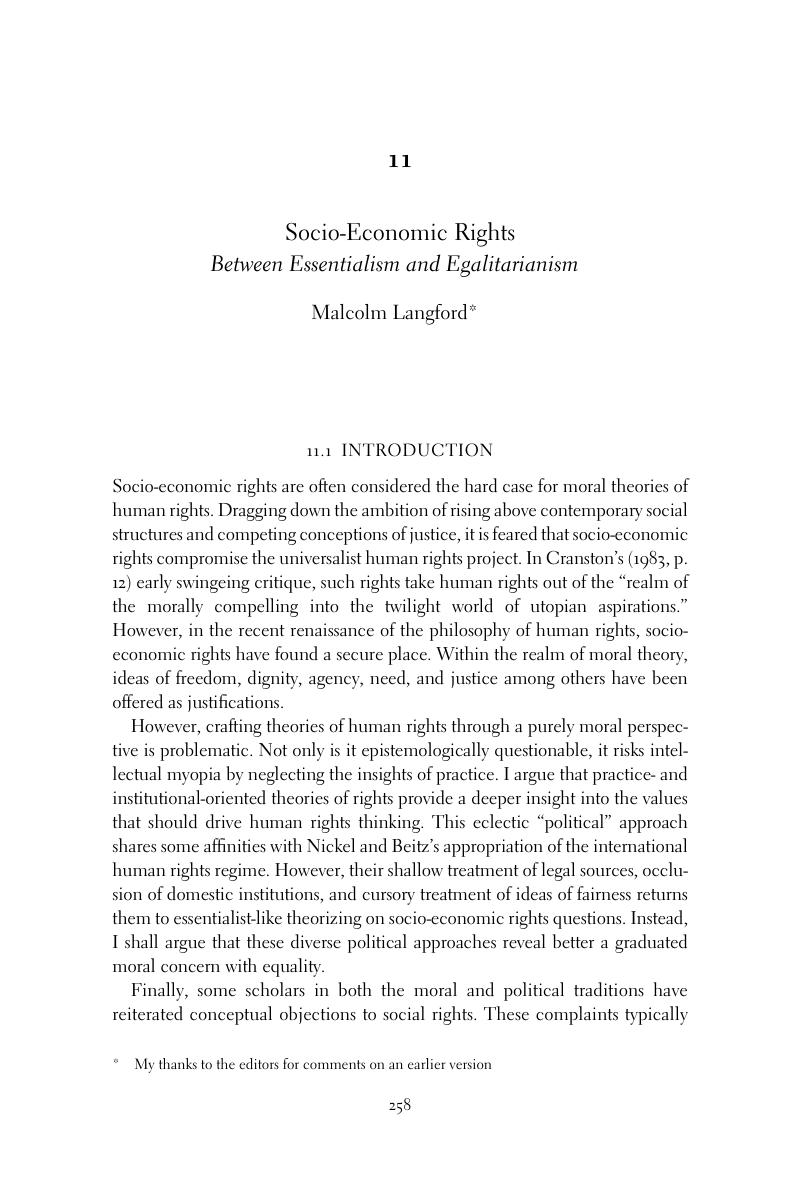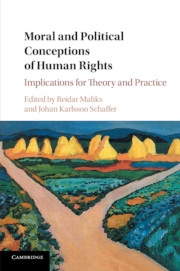Book contents
- Moral and Political Conceptions of Human Rights
- Moral and Political Conceptions of Human Rights
- Copyright page
- Contents
- Contributors
- Foreword
- Acknowledgments
- Expanding the Debate on Moral and Political Approaches to the Philosophy of Human Rights
- Part I
- Part II
- 7 Human Rights Solidarity
- 8 When the Practice Gets Complicated
- 9 Can Naturalistic Theories of Human Rights Accommodate the Indigenous Right to Self-Determination?*
- 10 Political Conceptions of Human Rights and Corporate Responsibility
- 11 Socio-Economic Rights
- Index
- References
11 - Socio-Economic Rights
Between Essentialism and Egalitarianism
from Part II
Published online by Cambridge University Press: 27 July 2017
- Moral and Political Conceptions of Human Rights
- Moral and Political Conceptions of Human Rights
- Copyright page
- Contents
- Contributors
- Foreword
- Acknowledgments
- Expanding the Debate on Moral and Political Approaches to the Philosophy of Human Rights
- Part I
- Part II
- 7 Human Rights Solidarity
- 8 When the Practice Gets Complicated
- 9 Can Naturalistic Theories of Human Rights Accommodate the Indigenous Right to Self-Determination?*
- 10 Political Conceptions of Human Rights and Corporate Responsibility
- 11 Socio-Economic Rights
- Index
- References
Summary

- Type
- Chapter
- Information
- Moral and Political Conceptions of Human RightsImplications for Theory and Practice, pp. 258 - 298Publisher: Cambridge University PressPrint publication year: 2017
References
- 2
- Cited by

